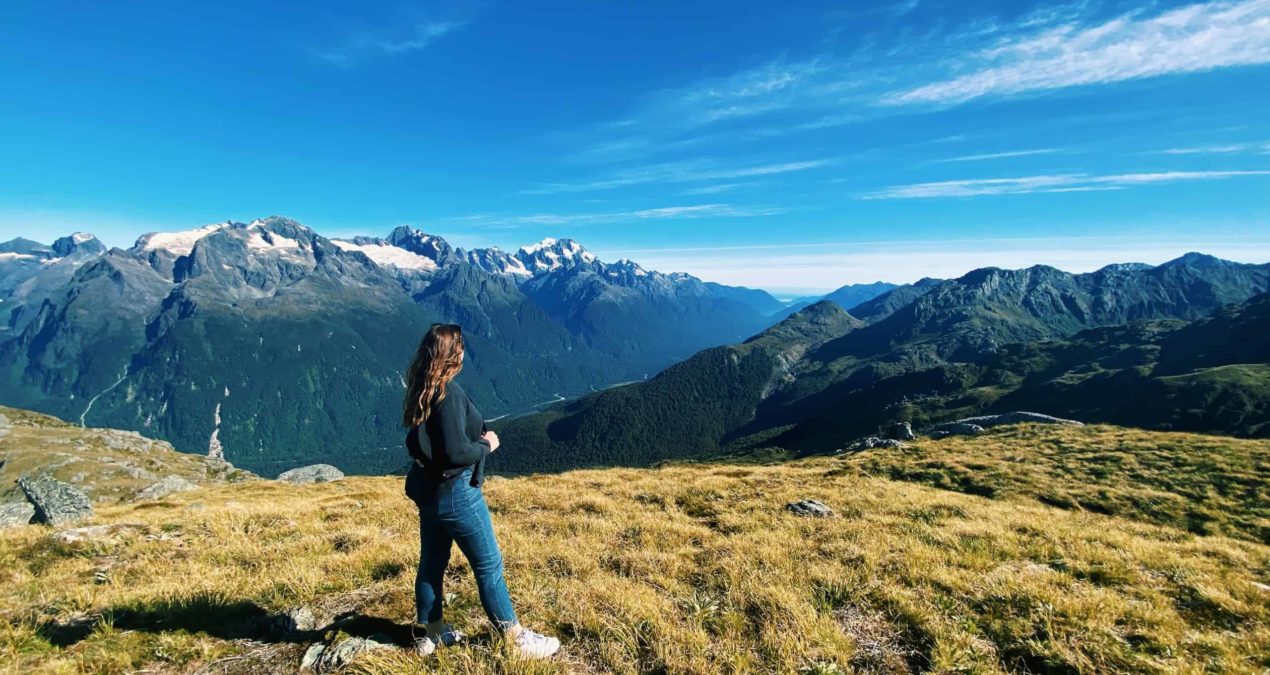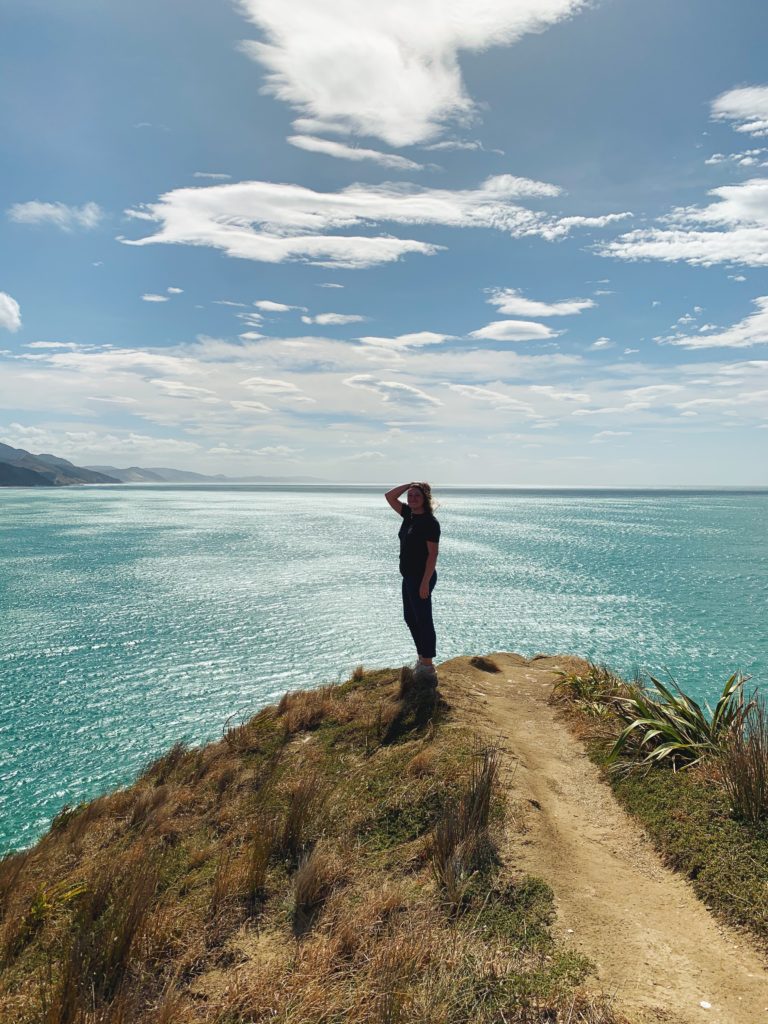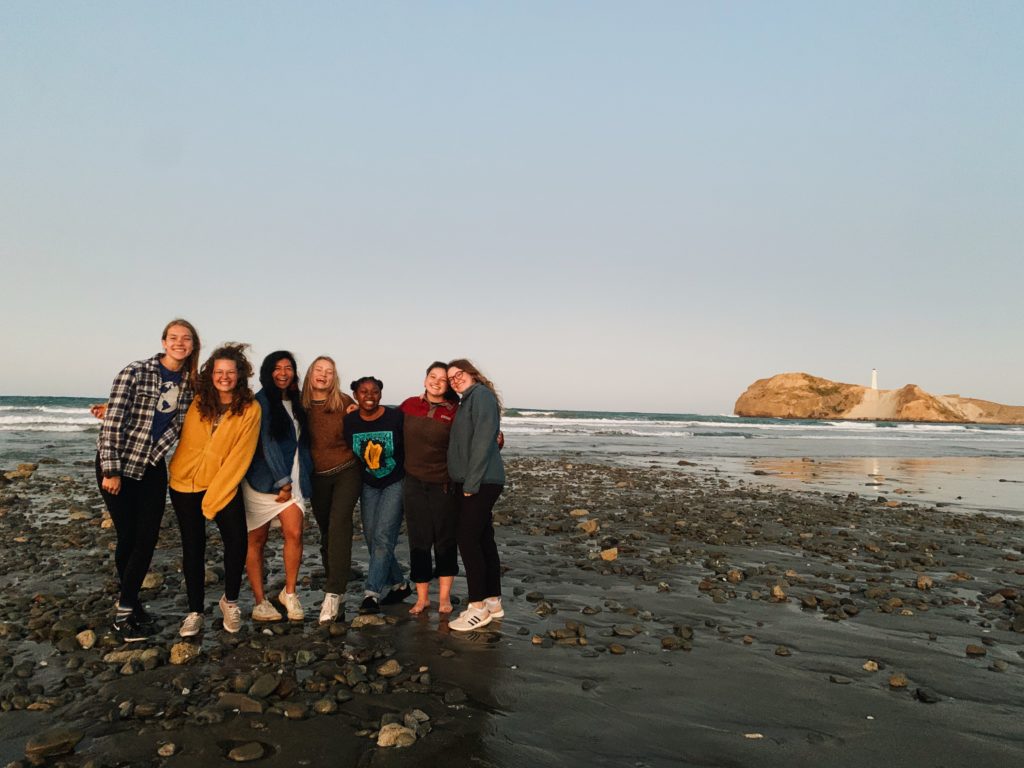LIZ ANASTASIADIS, Managing Editor Emeritus — People say that going abroad is supposed to be the most magical time in a college student’s career. While there are bigger problems that are being dealt with during the pandemic, Denisonians abroad on March 11 had less than 48 hours to get home, newfound consternation set in as a presidential executive order banned European travel.
President Donald Trump’s announcement on March 11 to ban travel to and from Europe due to the COVID-19 pandemic brought panic amongst American study abroad students across the globe as they arranged to travel back to their homes.
The announcement was without consultation with the European Union and was effective in two days: it was made on Wednesday evening and would be in effect by Friday, March 13. Amid the chaos, airports were packed, TSA was a mess, goodbyes unsaid, and plans cut short.
“It’s very sad, disappointing and distressing,” said Dr. Katy Crossley-Frolick, Off-Campus Studies (OCS) director and political science professor. “It’s occurring in the context of a global pandemic. There’s nothing that I’ve experienced that’s been like this. One year, we had one student coming home because of political unrest. All of them are going to feel a range of emotions — anger, despair, and I experience all of these feelings with them.”
COVID-19 concerns were already on the radar of students studying abroad and their program providers. However, the global situation accelerated quickly as more events started to get canceled, schools and restaurants were closed, quarantine was in effect, and gatherings were limited to 10 to 30 people. Students studying in Italy were sent home mid-February as the country became a hub for the virus to spread throughout Europe. Within days, the streets emptied.
Denison had 132 students studying off-campus, four within domestic programs and the majority studying in Europe.
“This started out slow with a cascade of suspended programs,” Crossley-Frolick said. “It was a huge avalanche with suspensions and notifications that students were coming home. We had students fill out a Google form with flight information and track when students are coming home. There were a lot of flight cancellations and suspensions.”
The programs, first in Europe and then globally, were cancelled because of a large spike of regulations stemming from the pandemic.
According to Radio Free Europe/Radio Liberty’s live coronavirus map, as of April 8, there are 1,450,674 confirmed cases worldwide and 399,929 confirmed cases in the United States, currently the world’s most confirmed cases.
How students coped with the news
Liz Anastasiadis: What was the process like (getting a flight home, restrictions in your country, etc.)?
Sara Flatt ‘21, studying in Wellington, New Zealand: It was extremely frustrating. I was having to process the idea of leaving a place I felt I had not had enough time with and people I loved from my program, all while trying to call airlines to book flights costing extreme amounts of money. Not only this but because my mandated date of return was moved up, I had purchase and repurchase flights and just told myself I could cancel them later because the number one priority was to get home. I felt panicked and rushed and my mom had to call and help me with scheduling flights so we could have more than one person to contact airlines. My program directors stayed on the phone for several hours just booking flights for the students and trying their best to purchase any ticket they could get. When we got the news on Friday, March 19 that we had to leave, I had booked a flight for the following morning to leave the country. Things happened so fast.
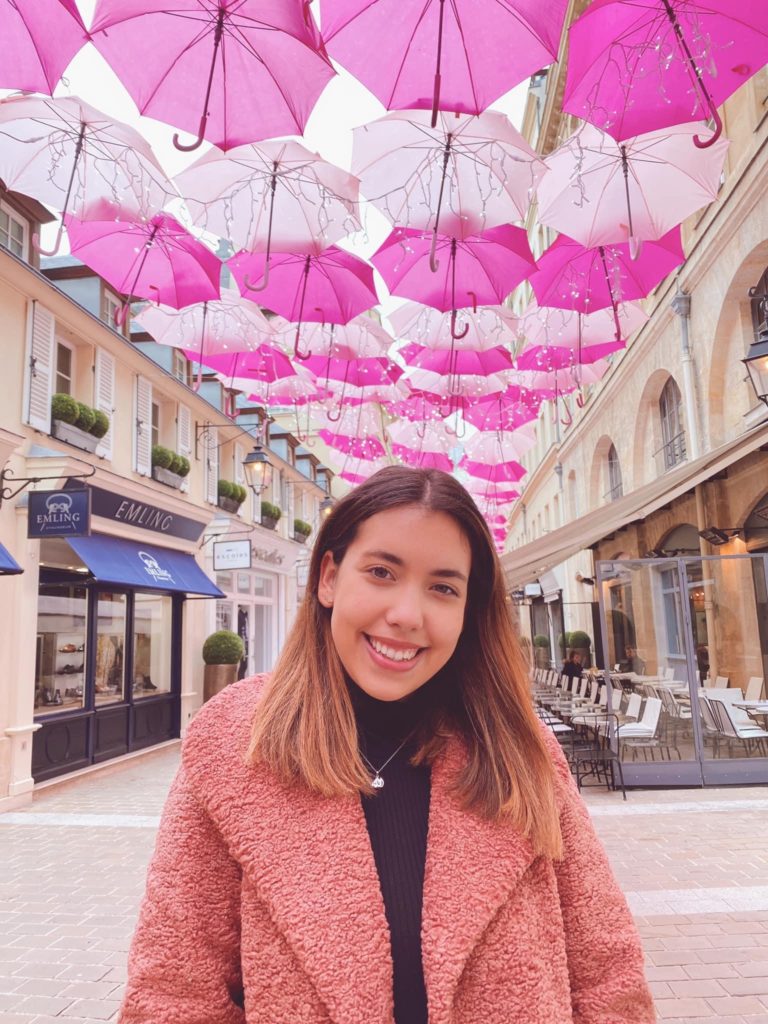
Fatimah Elghazawi ’21 in Paris, France during the beginning of the semester. Photo courtesy of Fatimah Elghazawi 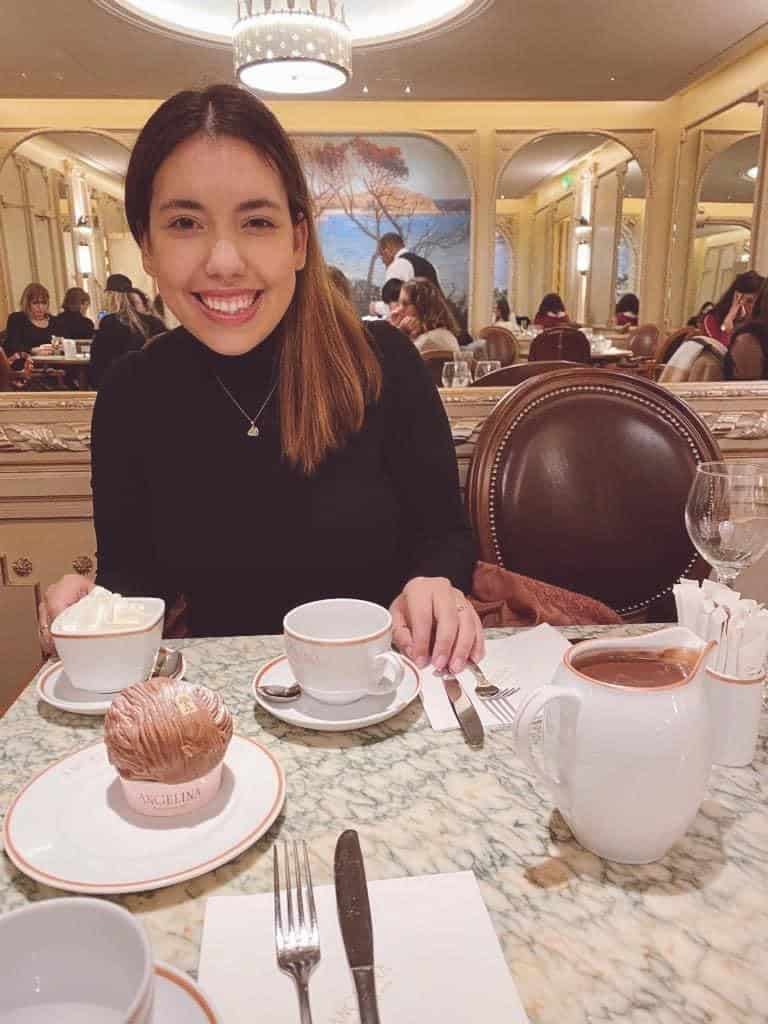
All of Elghazawi’s classes are taught exclusively in French for her study abroad program. Photo courtesy of Fatimah Elghazawi
Fatimah Elghazawi ‘21, studying in Paris, France: It was chaos. I managed to get one of the last few seats available on a direct flight to Chicago and was able to change my original flight on May 16 (the end of my program) to the 12 of March. I was really lucky. I can best explain that day by saying it felt like a fever dream. I was woken up at 2:00 a.m., so many of my loved ones were worried, and I had to pack my whole life up in hours and make it to the airport in a matter of hours. I was so emotional: so many experiences put on hold, not having the chance to say goodbye to my friends, saying goodbye to my host mom. I felt even luckier upon arriving at the airport. It was madness. I arrived around 7:00 p.m. and it was crowded beyond comparison. Employees scrambled for some kind of order in check-in lines and luggage drop off points. What was most striking was the huge line at the ticket counter, the vast majority of Americans. I overheard a man saying he had just arrived in Paris that morning and now had to go back immediately. Everyone was talking about Trump’s announcement, and everyone was urgently trying to find a way home. My flight to Chicago didn’t have a single seat open after boarding. The pilot even greeted us by saying “welcome to the great escape.” It was really overwhelming. At that point, as sad as I was, I just wanted to be home.
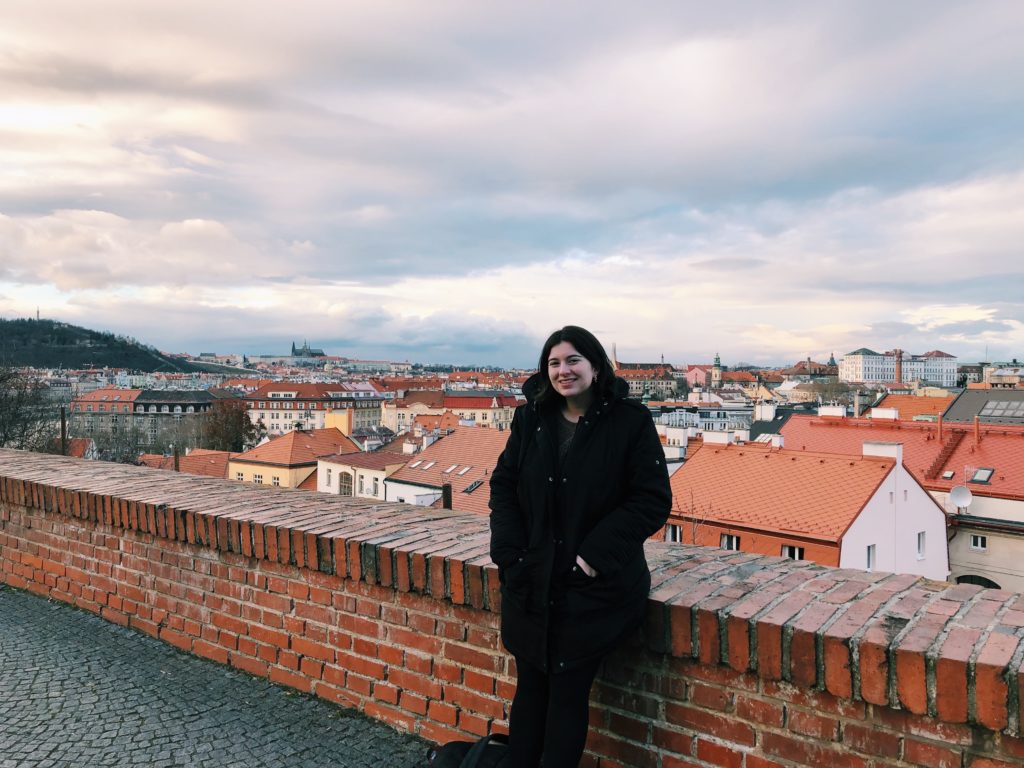
Natania Chaskes ‘21, studying in Prague, Czech Republic: When I heard about Trump’s announcement I kind of panicked because so many details were left unclear so I basically just called my parents and they managed to book me a flight while I packed.
Anastasiadis: How did it make you feel that your program was over?
Flatt: I was and am devastated. As privileged and stupid as it sounds, it felt so unfair. After the excitement and anticipation for a year about doing this program, about exploring this country, only to be rushed out without a chance to process that it was over. I didn’t even get a chance to say goodbye to my host family or my internship hosts in person because I had to pack up and leave with little time before my flights. I feel so grateful for the time that I did have but I wish it could have been longer.
Elghazawi: Heartbroken. I’m glad we all got back safely and before things got worse. It was obviously the right decision to make, and I’m doing better now in comparison to my first couple of days back. I was really upset because I had so much planned and living in Paris was a dream come true. I had advanced my French so much, I had loved my homestay, and there was so much left to do and explore. Things have gotten much worse in France now as well as the country is under lockdown. I know I would’ve been in an awful place if I was there without my family at this point, so I’m glad I was able to come back safe and sound. What matters now is that the situation gets better. It’s really unfortunate but I’ll be back someday.
Chaskes: I’m trying to put a positive spin on the situation, so I’ve been focusing more on the six weeks that I did get to spend there rather than the seven weeks I won’t get to spend there. I’m extremely grateful for the experience I had and I got to do a lot of amazing things, but it’s impossible not to be somewhat disappointed about all the things I was expecting to do that are now impossible. As much as I wish I was able to complete my program, I’m glad to be home considering everything that’s happening.
Anastasiadis: Did you receive contact or help from Denison’s OCS office about getting back to the United States immediately? If so, what did they say? If not, how did this make you feel?
Flatt: Denison only wanted to know when I would be back but did little to actually facilitate in my return. I was getting a lot of support from my program directors so I didn’t feel alone in the process.
Elghazawi: OCS was really helpful. They responded to my emails immediately when I notified them of my departure and were a comfort when I needed it most. My mom had also been in touch with them on the phone as they provided guidance. After the suspension of my program, they sent a lengthy email about next steps and encouraged us to reach out as we navigated everything. I felt much better knowing they were in touch with us.
Chaskes: I did receive communication from Denison within 24 hours of Trump’s announcement but it was basically just confirming the information and instruction I had received from my program.
Anastasiadis: When you arrived back in the States, were you screened? Did you quarantine?
Flatt: I think because I didn’t come from Europe or Asia I did not get a health screening, but I am currently self-isolating and trying to minimize contact with anyone.
Elghazawi: I was not screened upon arrival, which was surprising. I was out of border control and customs in less than a half hour, and I had landed at Chicago’s O’Hare airport which I had expected to be much more chaotic than it was. All the employees were wearing gloves and masks, but nothing out of the ordinary occurred. Photos of the airport the day after were circulated on social media due to how congested it was. I’m glad I beat that. I wasn’t told to quarantine, but I voluntarily chose to do so and am continuing with social distancing.
Chaskes: I was not screened at all. I arrived at LAX on Friday night (March 13) and they did not ask me a single question. I have been quarantined for the past few weeks because of contact with a confirmed case in LA, but I would have done the quarantine even if that hadn’t happened.
Anastasiadis: What are the things you would have done if you didn’t get sent home?
Flatt: If I had not been sent home, I could have continued my internship at a really incredible place called Zealandia, a bird sanctuary that helps protect native NZ bird species. It was such a cool place and it inspired me so much for my future career aspirations. I could have seen the friends I made during the semester without it being over Zoom and explored Wellington. I was planning on getting my first tattoo while I was there, and I had even booked an appointment with an artist I really liked, but I had to cancel it and fly home before I could. I just wish I could have lived there for more time. I began to feel so comfortable and content in Wellington and with my internship and classes.
Elghazawi: I would have most definitely done so much more in Paris. There were so many places I was dying to explore that I didn’t have the chance to. I had a few trips outside of France planned as well that I didn’t get the chance to go on because of all this. I’m still trying to get them refunded which is proving to be a challenge.
Chaskes: There are so many! I had a few more weekend trips planned that I was looking forward to. My family was also going to come visit me and I was really excited to share my experience. Most importantly though, I wish that I had gotten the chance to fully connect with Prague. Although I loved the time I spent there and have a deep appreciation for it, I don’t think I feel as deep of a connection with it as other people who have studied abroad there.
Anastasiadis: How are online classes working for you?
Flatt: Because I arrived home so recently, I haven’t even thought about online classes. My program will be interesting to do over Zoom or Skype because it’s based so much on interaction and hands-on experience.
Elghazawi: It’s been difficult. It’s a lot more work than we had in comparison to when we were there which is understandable due to eliminating in-person classes, but it’s been an adjustment. Living in Paris and being immersed in the culture there was where I found most of my motivation and language advancement. That being said, it’s difficult to maintain that here. Everyone on my program seems to be in the same boat. We miss being with one another and practicing in person. Adjusting to being back home along with the constant stress of the current situation is really difficult: all of our classes are taught exclusively in French, and it has been challenging. I’m definitely trying my best.
Chaskes: Online classes started this week (March 23) and because of time zone differences, my program has decided to not do live video classes and instead to upload materials for us to look at on our own. I understand that this is the best decision logistically, but it definitely feels strange and it has been somewhat frustrating for me to keep track of what I’m supposed to be doing. I’ve also found it fairly difficult to focus on schoolwork because of everything that’s going on.
Anastasiadis: What would you say to people who are going abroad next year?
Flatt: Even though you think you have more time ahead of you wherever you are, don’t take any time for granted. Every single minute while you are abroad is an opportunity to do something you’ve always wanted to, to explore the place you are, and to meet new people. Take every chance you can when it’s offered and don’t tell yourself you’ll do it later. Just go and do it! You are extremely lucky to have the opportunity to experience the place you’re in, so be grateful and keep your mind on the present!
These students are just a snapshot of what Denisonian abroad had to go through. Others like international students who were abroad experienced military quarantine after returning to their home country and were not as lucky as these three. One student in South America was stuck thousands of miles away from her family. As part of the pandemic planning committee, the OCS office was committed to making sure that students abroad were safe during this difficult time. While cancellations brought disappointment and sadness, the global situation proves to be increasingly serious as the United States leads with the most confirmed COVID-19 cases in the world. For the safety of all, stay inside.
Alina Panek, Editor-in-Chief, contributed to this story.

